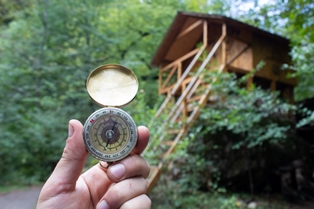In the ever-evolving landscape of language and linguistics, Merriam-Webster stands as a stalwart, not just as a dictionary but as a linguistic time machine. The Merriam-Webster Time Traveler is a unique tool that takes users on a journey through the linguistic history of words, revealing fascinating insights into their origins and transformations.
History of Merriam-Webster
Founding and Early Years
Merriam-Webster’s journey dates back to its founding in the 19th century. Established by George and Charles Merriam, the company quickly became synonymous with authoritative and comprehensive lexicography.
Evolution of the Dictionary
Over the decades, Merriam-Webster has evolved, adapting to the changing linguistic landscape. Its commitment to accuracy and relevance has made it a trusted source for wordsmiths and language enthusiasts.
The Concept of Time Traveler
Merriam-Webster’s Innovative Approach
The Time Traveler represents a paradigm shift in the way dictionaries are perceived. It’s not merely a static repository of words; instead, it’s a dynamic exploration of linguistic evolution.
How the Time Traveler Works
By allowing users to trace the history of a word from its inception to the present, the Time Traveler provides a contextual understanding of language. This interactive feature sets it apart from traditional dictionaries.
Benefits and Utility
Enhancing Vocabulary
The Merriam-Webster Time Traveler stands as an invaluable tool for language enthusiasts, offering a distinctive advantage in enhancing vocabulary.
Unveiling Word Evolution
At its core, the Time Traveler allows users to witness the metamorphosis of words across epochs. It goes beyond static definitions, immersing users in the dynamic journey of linguistic transformation. This process is not just about learning definitions; it’s a linguistic adventure that unfolds the layers of a word’s existence.
Nuanced Meanings and Contextual Shifts
By exploring the historical contexts in which words were used, users gain a profound understanding of how meanings have evolved. This isn’t a mere listing of synonyms and antonyms; it’s an exploration of the subtle nuances and contextual shifts that shape language. The Time Traveler transforms vocabulary enhancement into a rich and engaging experience.
Understanding Language Evolution
Chronicles of Language Dynamics
The Time Traveler transcends the boundaries of individual words, serving as a gateway to a broader comprehension of language evolution.
Capturing the Zeitgeist
In traversing the linguistic landscapes of different eras, the Time Traveler becomes a chronicle of the zeitgeist. It encapsulates not just linguistic changes but also the societal and cultural shifts that influence language. Each word becomes a time capsule, reflecting the ethos of its era. This holistic approach fosters a profound understanding of language as a living entity, shaped by the ebb and flow of human experiences.
Societal Changes and Cultural Nuances
Beyond syntax and semantics, the Time Traveler delves into the societal tapestry of each period. It elucidates how language adapts to cultural nuances and mirrors the ever-changing dynamics of human society. Understanding language evolution becomes a lens through which users can analyze historical and cultural phenomena, fostering a comprehensive appreciation of the intricacies of communication.
Controversies and Criticisms
Accuracy Concerns
While hailed as innovative, the Time Traveler hasn’t been without its share of criticisms. Some skeptics question the accuracy of historical word usage, emphasizing the challenge of capturing the intricacies of language evolution.
Impact on Language Education
Critics also raise concerns about the potential impact on language education. They argue that a tool like the Time Traveler might oversimplify the complexities of linguistic development, potentially misleading learners.
Merriam-Webster’s Influence
Language Trends and Reflections
An intriguing aspect of the Time Traveler is its ability to reflect broader language trends. Through the lens of words, it offers insights into societal shifts, technological advancements, and cultural phenomena.
Cultural Impact
Merriam-Webster’s Time Traveler isn’t just a linguistic tool; it has a cultural impact. Popular words and phrases become windows into the collective consciousness of a particular era, creating a tapestry of human experience.
Integration with Technology

Online Platforms and Apps
To meet the demands of the digital age, Merriam-Webster has integrated the Time Traveler into various online platforms and mobile apps. This move has democratized linguistic exploration, making it accessible to a global audience.
Accessibility and User-Friendly Features
The user interface is designed to be intuitive, ensuring that even those unfamiliar with linguistic nuances can navigate the Time Traveler with ease. Accessibility has been a priority, promoting inclusivity in linguistic exploration.
Comparisons with Other Language Resources
Merits and Drawbacks
Comparisons with other language resources reveal both merits and drawbacks. While the Time Traveler excels in contextualizing word usage, other tools may focus on different aspects of language study.
Standing Out in a Competitive Landscape
In a competitive landscape of language tools, the Time Traveler stands out as a testament to Merriam-Webster’s commitment to innovation. Its unique approach sets it apart, offering users a distinctive linguistic journey.
Future Developments
Potential Improvements
As technology advances and linguistic studies progress, the Time Traveler has room for improvement. Potential enhancements may include expanding the database, refining algorithms, and incorporating user-generated content.
Keeping Pace with Linguistic Changes
The linguistic landscape is dynamic, and Merriam-Webster aims to stay ahead. Keeping pace with linguistic changes ensures that the Time Traveler remains a relevant and indispensable tool for language enthusiasts.
FAQs
Here are some FAQs related to Merriam webster time traveler
The term “time traveler” refers to an individual or entity capable of moving through time, either forward or backward, beyond the normal progression experienced by others. In a broader context, it can also denote a concept often explored in science fiction, where characters navigate different temporal periods.
The “Merriam-Webster Time Traveler” is a unique feature offered by the Merriam-Webster dictionary. It allows users to explore the historical usage and evolution of words, providing a chronological journey through the various contexts in which a word has been used over time.
To determine a specific word born in 1991, one would need to consult the Merriam-Webster Time Traveler tool directly. It provides insights into the origins and first-known use of words, offering a fascinating glimpse into the linguistic landscape of a given year.
The time travel feature in the dictionary, such as the one offered by Merriam-Webster, allows users to track the historical usage of words. It enables users to explore when a particular word was first introduced, how its meanings have evolved, and its usage in different time periods.
The concept of time travel, as popularized in science fiction, remains a theoretical and speculative idea. While it is a fascinating subject of exploration in physics, no practical means of time travel has been demonstrated or proven possible according to current scientific understanding.
The key to time travel is currently a subject of scientific and philosophical speculation. In theoretical physics, concepts like wormholes, time dilation, and exotic matter are often discussed in the context of potential time travel. However, as of now, achieving practical time travel remains a theoretical and hypothetical notion.
Conclusion
In the grand tapestry of language, the Merriam-Webster Time Traveler weaves a narrative that transcends mere definitions. It’s a journey through time, a reflection of human expression, and a celebration of the ever-changing linguistic landscape. As we continue to explore the depths of language, the Time Traveler stands as a beacon, illuminating the rich history and vibrant evolution of the words we use every day.





